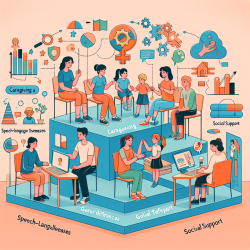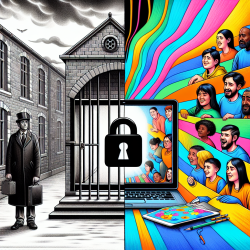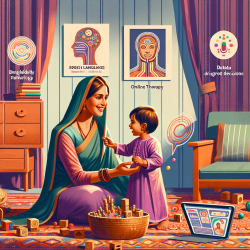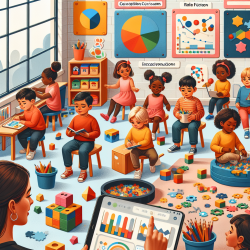Are you a practitioner looking to enhance your skills in supporting parents of children with rare diseases? The recent research article, "The Caregiving Experiences of Fathers and Mothers of Children With Rare Diseases in Italy: Challenges and Social Support Perceptions," provides valuable insights into the unique challenges and social support perceptions of these parents. Let's delve into the key findings and practical applications for your practice.
Understanding the Shared Challenges
The study highlights several common challenges faced by both fathers and mothers of children with rare diseases:
- Diagnosis Delays: Both parents emphasized the long wait for a diagnosis and the lack of clear communication from medical professionals.
- Lack of Medical System Support: Parents reported a significant lack of information about the disease and therapeutic interventions, as well as poor coordination among healthcare professionals.
- Emotional Impact: Feelings of abandonment and loneliness were prevalent, exacerbated by the isolation inherent in dealing with a rare disease.
- Behavioral Adaptations: Parents often became experts on their child's condition and sought support from other families in similar situations.
- Couple Dynamics: The caregiving role often strained relationships but also fostered closeness and mutual support.
Gender-Specific Challenges
The research also identified challenges unique to fathers and mothers:
Fathers
- Economic Pressure: Fathers often focused on job commitments and financial sustenance for the family.
- Educational Role: Fathers played a practical and recreational role in their child's education and activities.
- Emotional Responses: Fathers expressed worries about their child's future and often felt anger towards institutions.
- Active Information Seeking: Fathers were proactive in seeking information and engaging in social activities related to their child's condition.
Mothers
- Job Impact: Many mothers left or changed jobs to better care for their child, often experiencing significant lifestyle changes.
- Educational Role: Mothers took on an instructional role, adapting daily routines to meet their child's needs.
- Emotional Responses: Mothers were more focused on their child's present happiness and often felt a personal responsibility for the disease.
- Family Dynamics: Mothers highlighted the impact on siblings and the extended family, particularly grandparents.
Social Support Perceptions
Social support was a crucial factor for both fathers and mothers, primarily derived from self-help groups. Key aspects of social support included:
- Personal Growth: Increased self-awareness and optimism.
- Emotional Support: Feeling understood and sharing emotions with others in similar situations.
- Informational Support: Practical suggestions, shared experiences, and social comparisons.
- Social Function: Visibility and social action to raise awareness and advocate for needs.
Practical Applications for Practitioners
Based on these findings, here are some actionable steps for practitioners:
- Enhance Communication: Provide clear, understandable information to parents about the disease and therapeutic options.
- Foster Coordination: Improve coordination among healthcare professionals to reduce the burden on parents.
- Support Groups: Encourage participation in self-help groups to provide emotional and informational support.
- Gender-Specific Support: Recognize and address the unique challenges faced by fathers and mothers, offering tailored support.
To read the original research paper, please follow this link:
The Caregiving Experiences of Fathers and Mothers of Children With Rare Diseases in Italy: Challenges and Social Support Perceptions.










